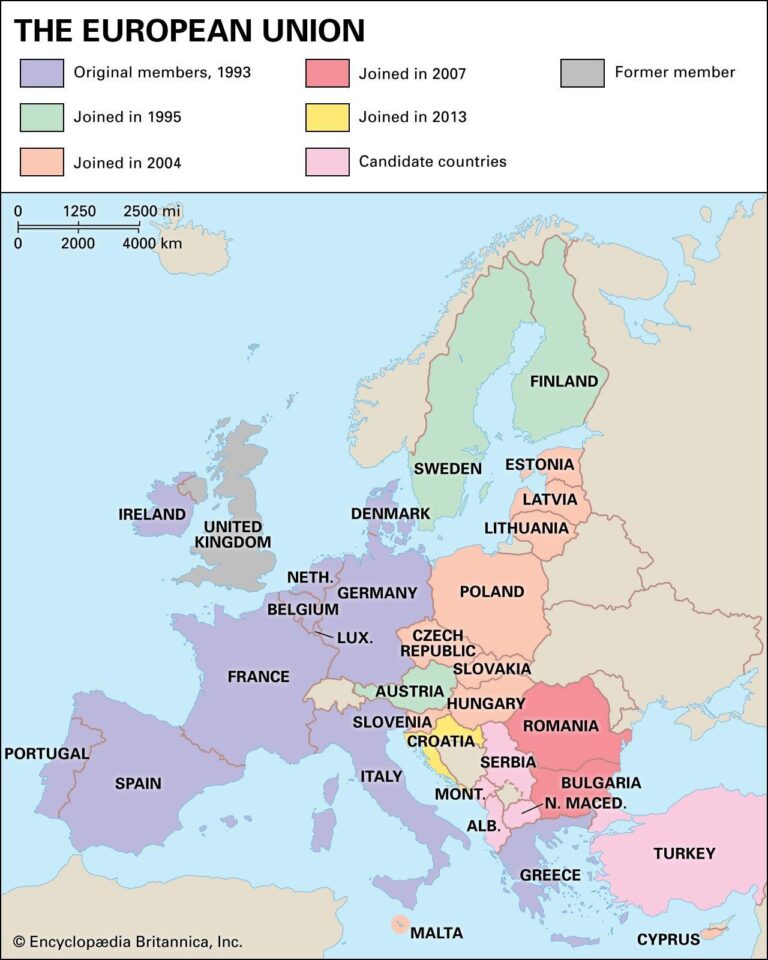The European Union has issued a strong condemnation following the Russian attack on an office in Kyiv, describing the incident as a blatant violation of international law. The assault, which targeted a key administrative building in Ukraine’s capital, has drawn widespread criticism from EU officials, who called for accountability and an immediate halt to hostilities. This reaction underscores the escalating tensions between Russia and Ukraine, as the conflict continues to destabilize the region.
EU Condemns Russian Strike on Kyiv Office Violating International Law
The European Union has issued a strong denunciation following the recent missile strike targeting a prominent office building in Kyiv. This attack is viewed not only as a grave breach of international norms but also as an alarming escalation that puts civilians and critical infrastructure at significant risk. EU officials emphasized that such actions undermine the prospects for peace and stability in the region and called for immediate accountability.
In response to the incident, the EU highlighted several key points:
- Violation of international humanitarian law: Targeting civilian offices is strictly prohibited and considered a war crime.
- Impact on diplomatic and humanitarian efforts: The strike threatens ongoing initiatives aimed at conflict resolution.
- Unified stance among member states: An urgent need to reinforce sanctions and support for Ukraine was reaffirmed.
| Aspect | EU Position |
|---|---|
| Legal Framework | Condemns breach of Geneva Conventions |
| Humanitarian Concern | Protect civilians and infrastructure |
| Political Response | Reinforce sanctions; diplomatic efforts |
Impact of the Attack on Civilian Infrastructure and Diplomatic Relations
The recent assault on Kyiv’s civilian infrastructure has exacerbated humanitarian concerns and intensified international condemnation. Civilian offices, including humanitarian aid centers, suffered significant damage, disrupting essential services that support thousands of residents. This attack not only inflicted physical destruction but also instilled widespread fear, undermining the stability of daily life for civilians caught in the conflict. Key facilities impacted include:
- Medical clinics disabled from providing urgent care
- Communication hubs interrupted, complicating coordination of relief efforts
- Public administration offices critical for civil services rendered inoperable
On the diplomatic front, the attack has galvanized the European Union’s stance, further straining relations with Russia. EU officials have described the strike as an unacceptable violation of international norms, leading to renewed calls for heightened sanctions and diplomatic isolation. This crisis has underscored the fragility of peace talks, with consequences outlined below:
| Diplomatic Response | Immediate Effect |
|---|---|
| Condemnation Statements | Unified EU voice denouncing aggression |
| Economic Sanctions | Proposals to expand restrictive measures |
| Suspension of Talks | Delay in conflict resolution initiatives |
Calls for Increased Sanctions and Strengthened Security Measures in Ukraine
In the wake of the recent devastation caused by the offensive strike on Kyiv’s civil infrastructure, European leaders have urgently called for escalated sanctions targeting Russian financial institutions and key energy sectors. Lawmakers and security experts emphasize that current measures have failed to deter further aggression, urging a comprehensive tightening of economic restrictions to cripple Moscow’s war machinery. Proposed sanctions include:
- Freezing assets of prominent Russian oligarchs
- Expanding export bans on dual-use technologies
- Implementing stricter travel restrictions for Russian officials
- Enhancing cyber warfare countermeasures targeting Kremlin networks
Alongside economic pressures, NATO and EU defense authorities are accelerating plans to bolster Ukrainian defenses. This involves increased military aid packages, deployment of advanced surveillance technologies, and coordination of intelligence sharing among member states. A strategic review table highlights these critical focus areas:
| Focus Area | Planned Enhancement | Expected Impact |
|---|---|---|
| Military Aid | Provision of anti-aircraft systems | Strengthened air defense capabilities |
| Intelligence Sharing | Improved real-time battlefield data exchange | Enhanced situational awareness |
| Cybersecurity | Deployment of advanced cyber defense units | Mitigation of cyber-attacks |
To Conclude
The European Union’s strong condemnation of the Russian attack on the Kyiv office underscores the escalating tensions in the region and the broader geopolitical ramifications. As investigations continue and diplomatic responses unfold, the international community remains vigilant in monitoring the situation, emphasizing the urgent need for de-escalation and respect for sovereign borders. The coming days will be critical in shaping both the immediate and long-term stability of Eastern Europe.




